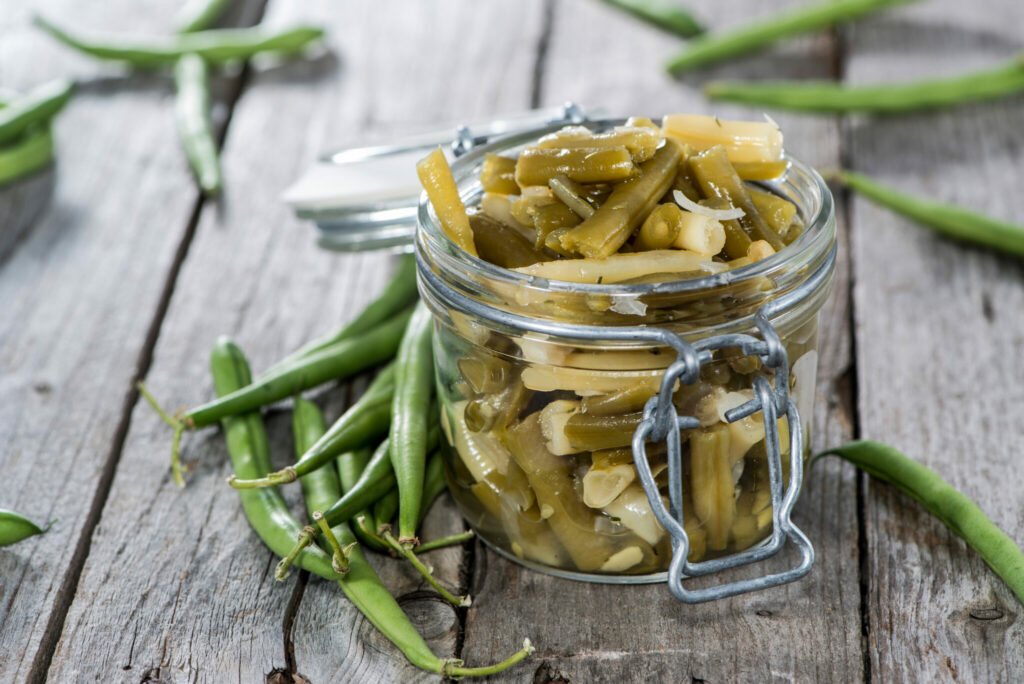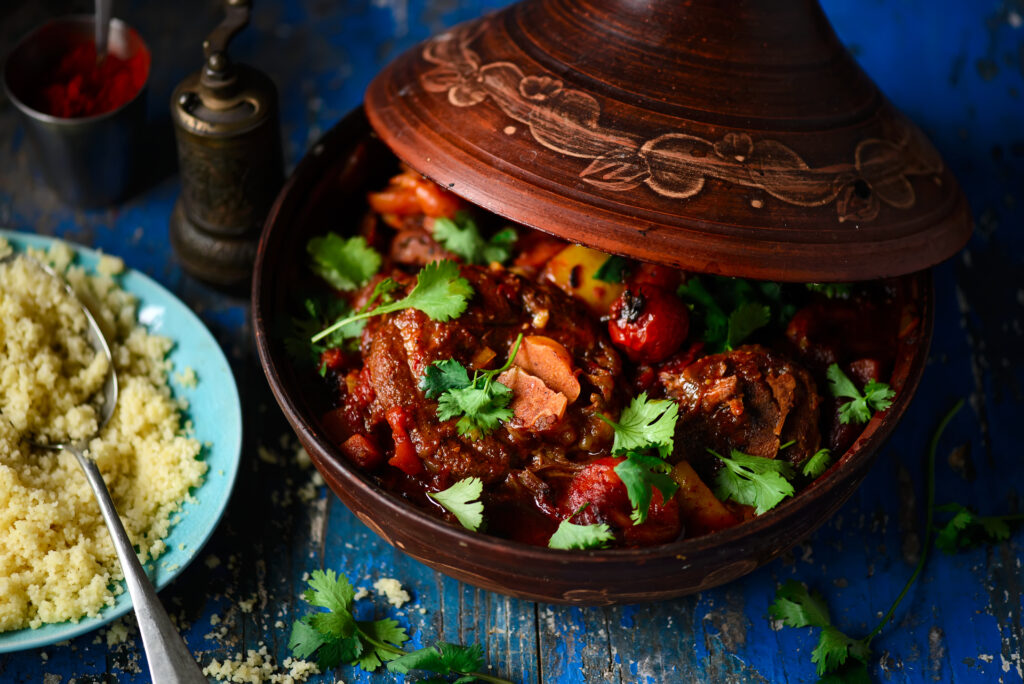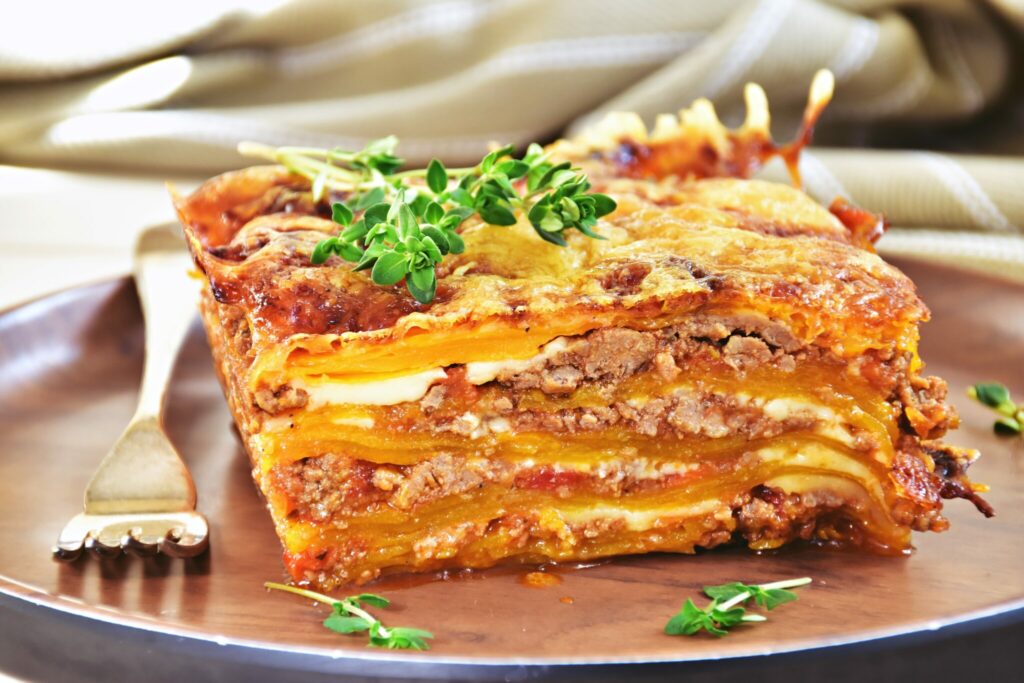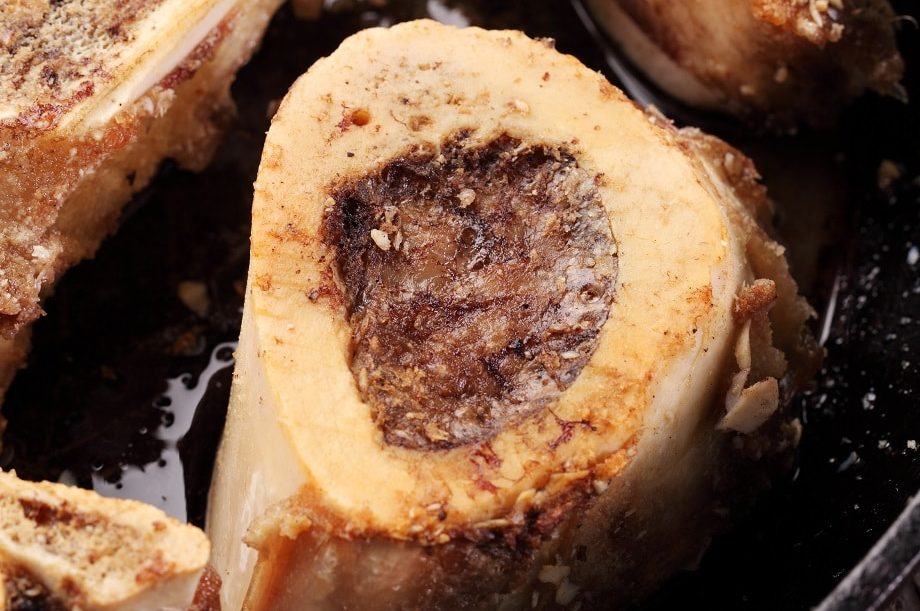Access to all articles, new health classes, discounts in our store, and more!
Featured Recipes – March 10, 2023

Many people are unaware of the level of impact that foods of the African diaspora have had on many of the dishes we know and love today, from the spicy fare of West Africa to the unique, pickled creations of African American cuisine. During February, we posted several of our recipes to honor Black History Month and the indelible impact of the work of black farmers, artisans, and chefs across the globe.
Today’s Recipe Feature highlights some of our favorites that we’d like to share with you, full of wholesome ingredients to boost your health. Be sure to check out each of the links below to view our new recipe reels, captured as we’ve made them in our own kitchens, and get a preview of what to expect when preparing them for yourself!
Lacto-fermented “Pickled” Green Beans
Much like traditional African foods and dishes influenced other regions of the world, African cuisine in America forever changed the culinary landscape. Influenced early on by Spanish and French cuisines, it ultimately gave us the southern “soul food” that we know (and love) today.
Carrying on the traditions of their ancestors (who considered fermented foods to be of the utmost importance for women and children’s health), African-American cooks preserved garden-fresh foods by pickling or fermenting. One of the oldest food processing technologies, fermentation of African indigenous vegetables is known to improve nutritional value, with some lactic acid bacteria having been found to possess cholesterol-lowering and antioxidant properties.
Click here for the recipe and video.
Cook time: 4-5 days.

Rooted deep in the Indigenous history of the region, Moroccan cuisine owes many of its globally-recognized dishes, such as couscous or Tajine (which is typically a slow-cooked meat stew), to the Amazigh Peoples (which means the ‘free men’) of North Africa. This nomadic pastoralist nation continues to follow the lifestyle of their ancestors to this day, heavily relying on sheep and goats both nutritionally and culturally.
Packed with bioavailable nutrients that are often found lacking in the average American diet, like iron and zinc, lamb also provides an excellent source of B vitamins, with the frontrunner being vitamin B12, which is needed for supporting optimal nervous system health.
Click here for the recipe and video.
Cook time: 45-60 minutes.

Butternut Squash Lasagna Without the Lasagna
Consumed by humans for well over 10,000 years, squashes, such as the butternut (Cucurbita moschata), have deep roots in the ‘New World’, and were valued by Indigenous Americans, who used the seeds for treating parasitic infections. Despite this long history, recent evidence now suggests that squash (whose ancestor better resembled the inedible gourds we know today) may have first originated in prehistoric Africa.
Today, butternut squash is valued by both modern chefs and farmers alike for both its culinary versatility and capability to withstand long bouts of dry conditions. Nutritionally speaking, this “buttery, sweet” squash boasts an impressive profile: Along with providing a healthy serving of vitamin C and manganese, butternut squash also contains a high amount of vitamin A (which is best absorbed in the body when combined with healthy fats, such as ghee).
Click here for the recipe and video
Cook time: 8-9 hours.

Roasted Bone Marrow w/ Honey Butter
Over 3.4 million years ago, human ancestors began utilizing stone tools to obtain the most highly prized food source at the time: meat and bone marrow. In the absence of adequate claws or teeth to take down and tear apart prey, Australopithecus afarensis in Ethiopia began using stone tools, including stone “knives,” to carve meat from scavenged animals and to gain access to the life-giving marrow within bones.
Marrow is packed with anti-inflammatory compounds, like glucosamine (an amino sugar that is important for joint mobility), as well as amino acids like glycine, an important component in the creation of creatine, which can help increase muscle mass and endurance.
Click here for the recipe and video.
Cook time: 30 min.

In case you missed the last Recipe Feature, you can find it here:
Recipe Feature, February 10, 2023
Follow us on our social media channels (Facebook, Instagram, YouTube, and LinkedIn) to see the latest recipes as we post them throughout the week.
To your best health,
The Price-Pottenger Team


